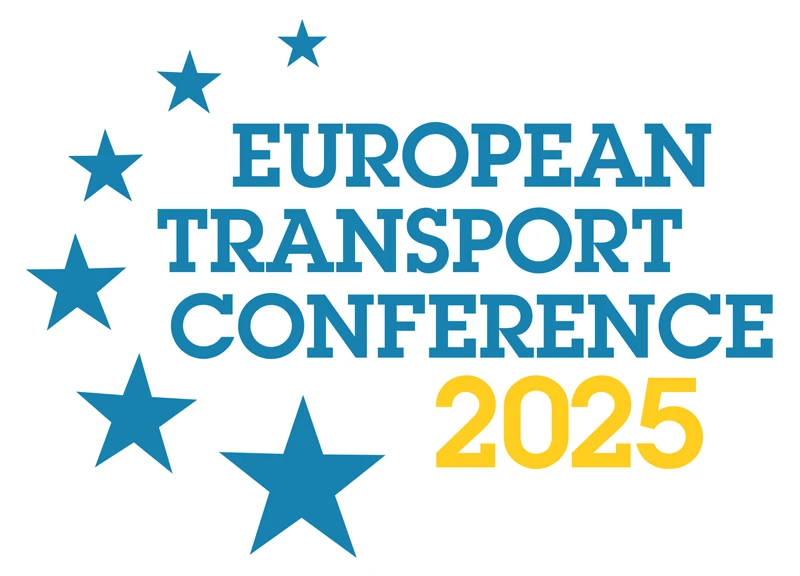-
Past ETC Papers

Browse, search and view papers from the past AET Conferences.
-
Members' Area

AET promotes networking and exchange of ideas, information and opportunities amongst members.
Conference Papers 2019
Dublin, Ireland
ETC Conference Papers 2019
Universally Designed Public Transport Systems that are accessible and useable by everyone - an international collaboration
Seminar
Day 1 (9 Oct 2019), Session 2, Safety and People with Disabilities, 14:00 - 16:00
Status
Accepted, awaiting documents
Submitted by / Abstract owner
Niamh Fawl
Authors
Dr Gerard Craddock, Chief Executive, Centre for Excellence in Universal Design at the National Disability Authority, Ireland
Ms. Niamh Fawl, Senior Standards Officer, Centre for Excellence in Universal Design at the National Disability Authority, Ireland
Mr. Tian Feng, Vice President of California Architect Board and Chief architect San Francisco Bay Area Rapid Transit (BART) District, USA
Short abstract
The National Disability Authority in Ireland and Bay Area Rapid Transit in the USA have collaborated to produce a case study that demonstrates the effectiveness of implementing and monitoring universally designed public transport services
Abstract
The Global Network on Disability Inclusive and Accessible Urban Development (DIAUD) is a multi-stakeholder network that works to ensure that the New Urban Agenda and the UN Habitat III process incorporate the perspectives of persons with disabilities. The DIAUD estimates that by 2050, 6.25 billion people will be living in urban centres. One billion (15%) of this population will be persons with disabilities and 2.1 billion will be over the age of 60 yrs. In 2018 the United Nations reported that there was an urgent need for accessible public transportation for persons with disabilities living in major cities.
The lack of accessible public transport services in the world’s cities is problematic for today’s users and possibly for future generations unless this is tackled now through a transformation in thinking and the implementation of more inclusive designed transport systems. Universal Design has been a global trend for improving accessibility, understandability and usability of products and the built environment for over 20 years. This trend has expanded to apply the same thinking and approach to global cities that require sustainable, cost efficient and universally designed public transport services that can be accessed by everyone regardless of age, size, ability or disability. To date however the public transport industry has not demonstrated sufficient progress regarding incorporating the principles of universal design into the design and operation of their transport services.
The National Disability Authority in Ireland (NDA) and Bay Area Rapid Transit (BART) in the USA have collaborated to demonstrate the effectiveness of an operational, universally designed public transport service and how this effectiveness can be maintained and progressed by using a practical, streamlined monitoring process.
The National Disability Authority (NDA) is the independent state body providing expert advice on disability policy and practice to the Government and the public sector in Ireland. The statutory Centre for Excellence in Universal Design is an integral part of the National Disability Authority and promotes Universal Design in Ireland.
The Bay Area Rapid Transit (BART) District in San Francisco, USA connects the San Francisco Peninsula with Berkeley, Oakland, Fremont, Walnut Creek, Dublin/Pleasanton and other cities in the East Bay.
BART have worked with the American Public Transport Association and the NDA to develop Transit Universal Design Guidelines that are being applied to transport and facility projects in the Bay Area District. The NDA is working with relevant stakeholders such as Government Departments and agencies, public transport service providers and service users in Ireland, in addition to colleagues in Europe and Australia to disseminate and implement these guidelines.
The NDA have also designed and applied a monitoring system for measuring the accessibility of public transport systems in Ireland covering, train, bus and light rail.
The transferable learning and outcomes from this case study demonstrate the long term benefits to be gained from:
• The application of Universal Design principles to public transport services
• Having a practical streamlined annual monitoring process that clearly measures the progress public transport service providers are making in delivering and progressing universally designed services
The focus of this work has primarily been on public transport services in urban areas due to the accelerated rates of global urbanisation. However the learning from this will also be applied to the provision of integrated universally designed public transport services in rural areas
This international collaboration reflects the core of universal design objectives through the application of Universal design principles that can have a significant positive impact on rural, regional, urban, and national transit systems across the globe. A globally improved public transport based on a universal design approach will help address complex issues of sustainability, globalisation, urbanisation, mobility, public health and well-being.
Programme committee
Global Trends Impacting Transport
Documents:
No documents yet.
Association For
European Transport
Forester House
Doctors Lane
Henley-in-Arden
Warwickshire, UK
B95 5AW
+44 (0) 15 64 793552
VAT number: 710 1866 64
Conference Supporters & Endorsers




Legal Entity
The Association for European Transport is registered as an Association ('vereniging') with the Chamber of Commerce for Haaglanden in The Netherlands under company number 27170096.
Built on Zenario




